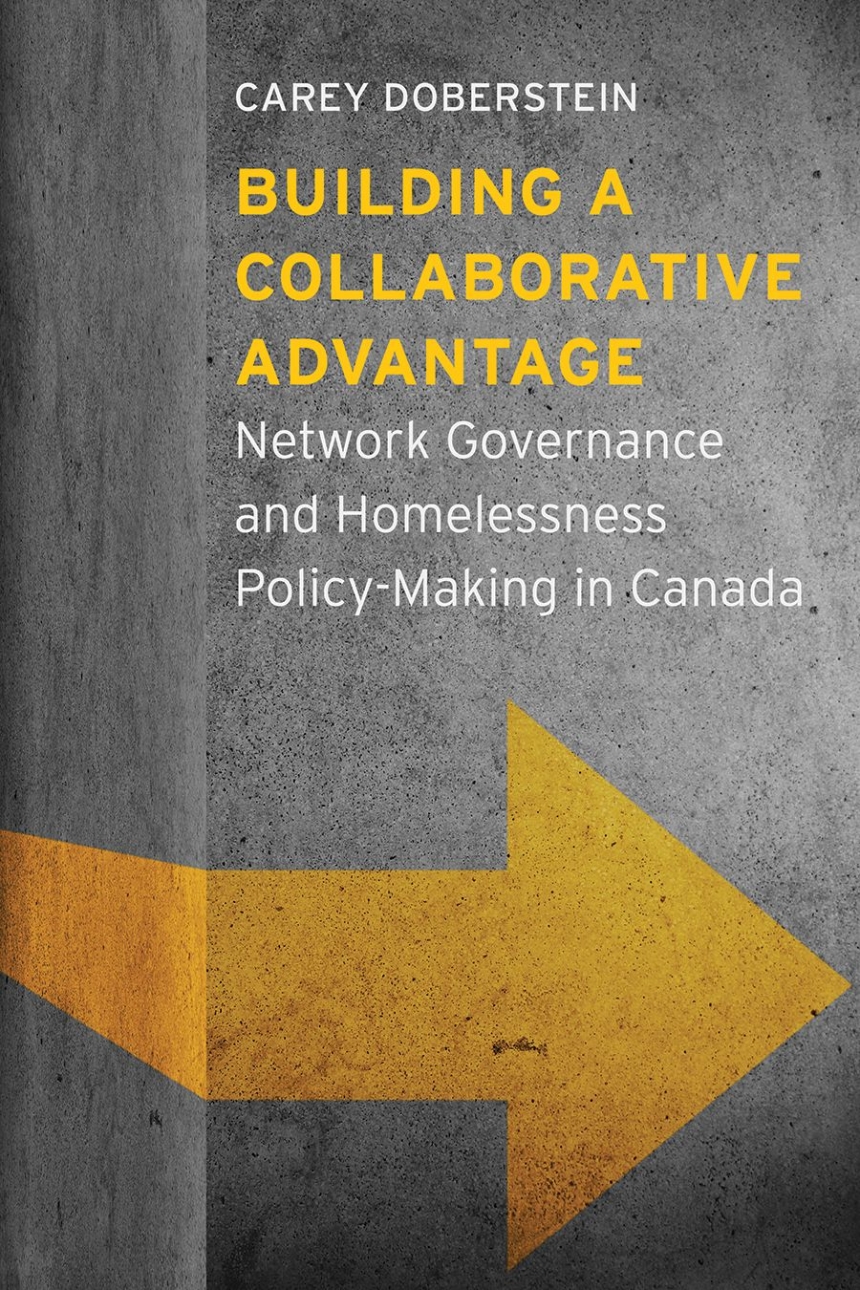University of British Columbia Press
Building a Collaborative Advantage
Network Governance and Homelessness Policy-Making in Canada
Distributed for University of British Columbia Press
Building a Collaborative Advantage
Network Governance and Homelessness Policy-Making in Canada
Homelessness is not a historical accident. It is the disastrous outcome of policy decisions made over time and at several levels of government. Drawing on network governance theory, extended participant observation, and more than sixty interviews with key policy figures, Carey Doberstein investigates how government and civil-society actors in Vancouver, Calgary, and Toronto have organized themselves to solve public problems. He concludes that having a progressive city council is not enough to combat homelessness – civil-society organizations and actors must have genuine access to the channels of government power in order to work with policy makers and implement effective solutions.

